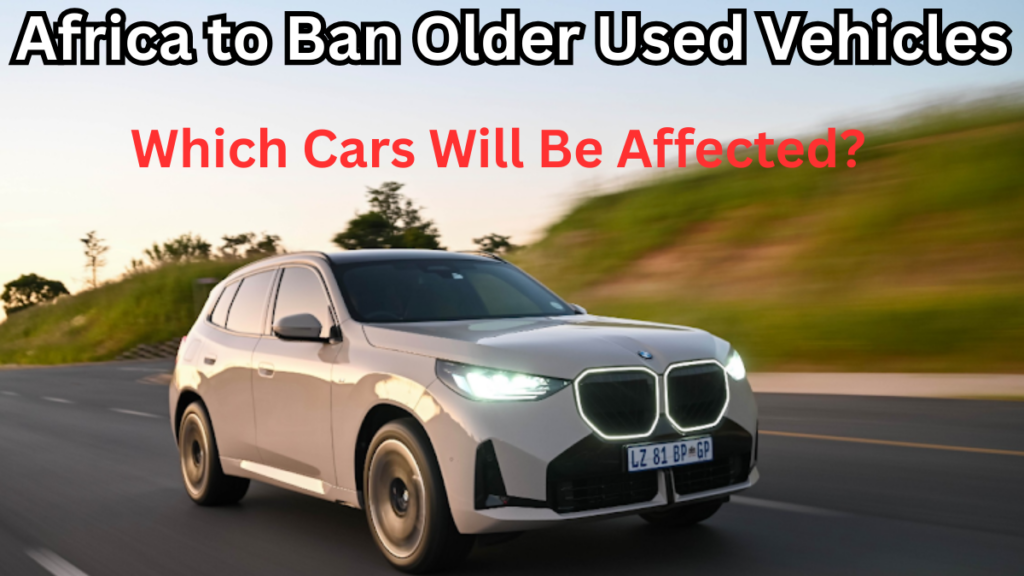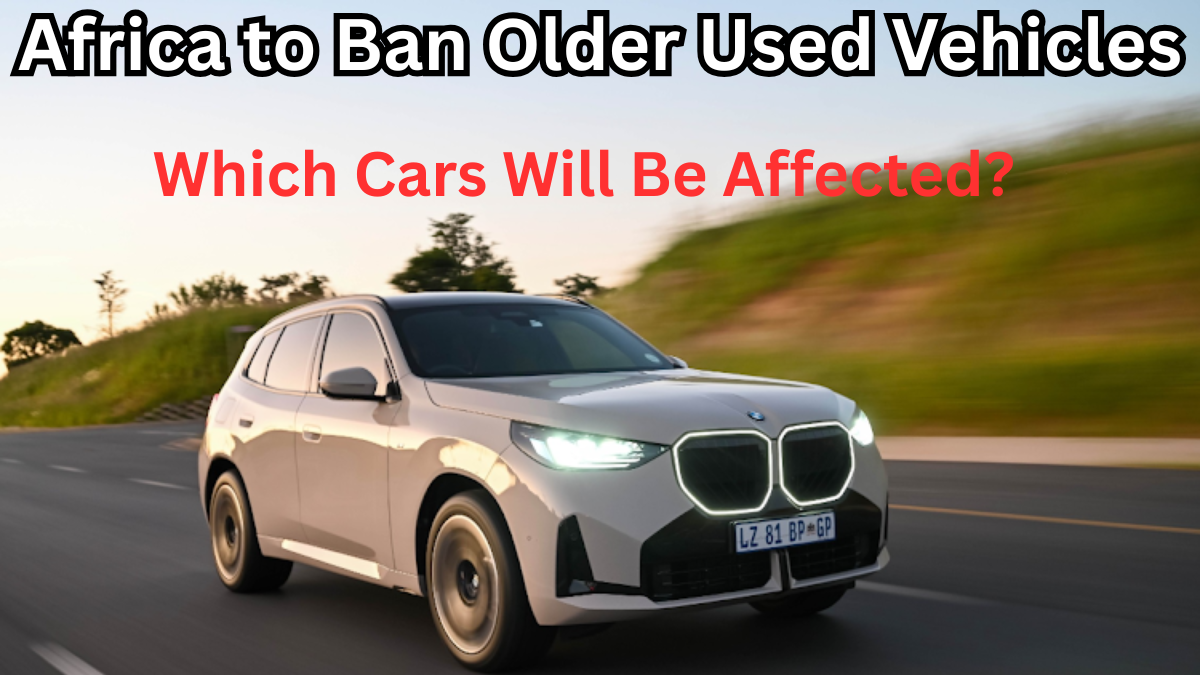In a significant policy shift toward cleaner air and sustainable urban mobility, several African nations are set to enforce a Used Vehicle Age Ban starting in 2025. This move is closely aligned with broader pollution control regulation goals and is expected to impact the import and sale of older secondhand vehicles across the continent.
Here’s what you need to know about how this will affect vehicles, importers, and everyday consumers.

Why Is Africa Banning Older Used Vehicles?
African cities are grappling with rising air pollution, primarily from outdated and poorly maintained vehicles imported from other continents. These vehicles may be cheaper upfront but often come with higher environmental and health costs.
Key reasons behind the ban:
-
Rising urban pollution levels from old engines
-
Need to meet global and national pollution control regulation targets
-
Protecting public health through improved air quality
-
Supporting local vehicle assembly and greener alternatives
What Is the Used Vehicle Age Ban Africa Policy?
The Used Vehicle Age Ban Africa initiative involves setting maximum age limits for imported used vehicles. These limits will vary by country but typically range between 5 to 10 years, depending on the type of vehicle and its emission standards.
Country-wise age restrictions (as of 2025):
| Country | Vehicle Type | Max Import Age (2025) |
|---|---|---|
| Kenya | Cars | 8 years |
| Ghana | Cars | 10 years |
| Rwanda | Cars | 5 years |
| Nigeria (proposed) | Cars | 10 years |
| Uganda | Cars | 15 years |
Note: Final regulations are subject to updates from respective governments.
Vehicles That Will Be Affected
The ban mainly targets older, high-emission vehicles that are often resold in African markets. This includes both passenger and commercial vehicles that do not meet minimum emission standards.
Commonly affected vehicles:
-
Pre-2010 diesel-powered SUVs and sedans
-
Older petrol cars with high mileage
-
Commercial vans and trucks without emission certificates
-
Luxury cars from the early 2000s
Likely restricted models:
| Model | Common Year Range Affected |
|---|---|
| Toyota Corolla | 2005–2010 |
| Nissan X-Trail | 2006–2012 |
| Volkswagen Passat | 2008 models |
| Older Mercedes-Benz/BMW | 2000–2010 |
| Mitsubishi Pajero (diesel) | Pre-2010 |
What Does This Mean for Consumers?
If you plan to import or buy a secondhand vehicle in Africa after 2025, the Used Vehicle Age Ban Africa policy will bring some changes.
Key implications:
-
Fewer old cars available on the used market
-
Slightly higher prices for compliant newer models
-
Cleaner and safer vehicles on the road
-
Reduced health risks due to lower air pollution
Implementation Timeline Across Africa
Several countries have either already implemented age restrictions or are preparing to activate them in 2025 as part of their pollution control regulation commitments.
Timeline highlights:
| Country | Rollout Year | Implementation Status |
|---|---|---|
| Kenya | 2023 | Active |
| Ghana | 2025 | Pending final approval |
| Rwanda | 2024 | Enforced |
| Nigeria | 2025 | Under parliamentary review |
Why This Move Benefits Africa
The shift toward regulating used vehicle imports is not just about controlling pollution—it’s also about driving economic and social transformation.
Environmental benefits:
-
Reduction in PM2.5 and NOx levels
-
Fewer roadside emissions
-
Better air quality in urban zones
Economic advantages:
-
Stimulates local car manufacturing
-
Boosts electric and hybrid vehicle uptake
-
Reduces public healthcare costs due to cleaner air
FAQs
What is the main goal of the Used Vehicle Age Ban Africa policy?
The goal is to reduce environmental pollution and promote safer, more efficient vehicles in line with updated pollution control regulations.
Are all used vehicles going to be banned from 2025?
No, only those that exceed the maximum age limit set by individual countries—typically older than 5 to 10 years—will be restricted.
Will this policy increase car prices for consumers?
Yes, initially. But consumers will benefit from better vehicle performance, safety features, and lower maintenance in the long run.
Can I still import an older car with modifications?
Only if it meets the emission standards and roadworthiness certifications required by the destination country under its pollution and import regulations.
Click here to learn more
Sachin is a dedicated writer specializing in education, career, and recruitment topics, delivering clear and actionable insights to empower readers.
